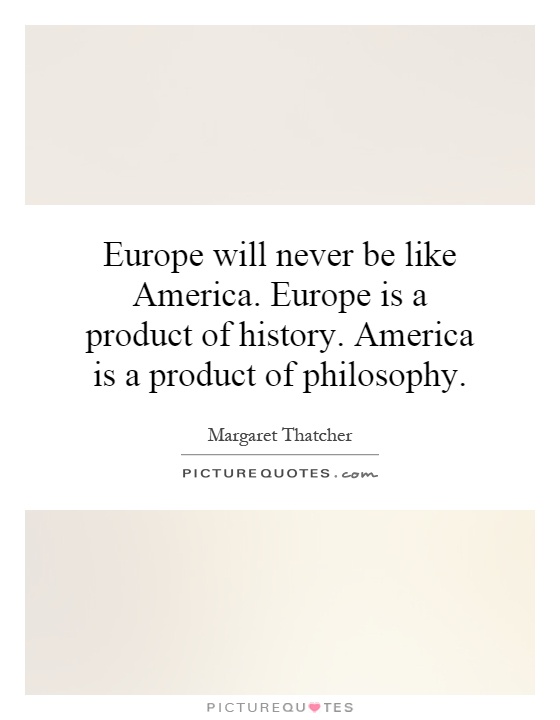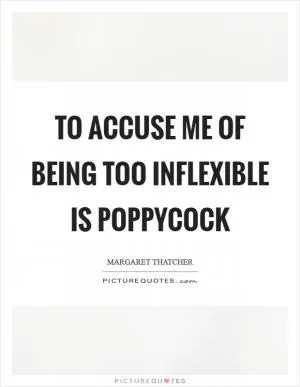Europe will never be like America. Europe is a product of history. America is a product of philosophy

Europe will never be like America. Europe is a product of history. America is a product of philosophy
Margaret Thatcher, the former Prime Minister of the United Kingdom, was a staunch advocate for free-market capitalism and individualism. She believed in the power of the individual to shape their own destiny and the importance of limited government intervention in the economy. Thatcher's policies, known as Thatcherism, were heavily influenced by the philosophy of American conservatism, particularly the ideas of Friedrich Hayek and Milton Friedman.Thatcher's belief in the power of the individual and the importance of personal responsibility can be seen as a reflection of the American philosophy of individualism. In America, the idea of self-reliance and personal freedom is deeply ingrained in the national psyche. This philosophy has shaped American society and culture, leading to a strong emphasis on entrepreneurship, innovation, and individual achievement.
On the other hand, Europe has a long and complex history that has shaped its political and economic systems. The European Union, for example, was created in the aftermath of World War II as a way to promote peace and cooperation among European nations. The EU has since evolved into a complex political and economic union, with its own set of rules and regulations that govern member states.
Unlike America, Europe's history is marked by centuries of conflict, conquest, and division. The continent has been shaped by wars, revolutions, and shifting alliances, leading to a diverse array of cultures, languages, and political systems. This history has created a sense of shared identity among Europeans, as well as a commitment to social welfare and solidarity.
Thatcher's belief in the power of the individual and the importance of limited government intervention in the economy can be seen as a reflection of the American philosophy of individualism. However, her policies were often at odds with the European tradition of social democracy and welfare state. Thatcher's aggressive free-market reforms, such as privatization and deregulation, were seen as a threat to the European model of social welfare and solidarity.












 Friendship Quotes
Friendship Quotes Love Quotes
Love Quotes Life Quotes
Life Quotes Funny Quotes
Funny Quotes Motivational Quotes
Motivational Quotes Inspirational Quotes
Inspirational Quotes